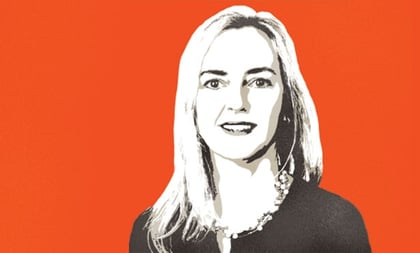Bernie Clark, head of advisor services for Charles Schwab, has been making annual trips to Washington for years to advocate on behalf of advisors during the Investment Adviser Association’s annual lobbying day, but he’s “thinking of dropping in more frequently.” With an office in Washington, the largest advisor custodian has an opportunity “to do more and continue the awareness [about advisors] and influence the regulations and legislation as [they] come up earlier,” Clark told me during a recent sit-down interview in late September at IA’s Washington office.
Scott Eckel, Schwab’s vice president of Legislative & Regulatory Affairs, who also was at the interview, noted that the industry still labors with helping lawmakers understand the advisor business — and Schwab’s role in it. “Certain members of Congress think of Schwab in a particular way — that we’re serving investors from the brokerage side,” Eckel told me. “But we’re continuing to hit as many people up [on Capitol Hill] in important roles to remind them that we very importantly represent thousands of registered investment advisors all over the country.”
As it stands now, Schwab provides custodial, operational and trading support to more than 7,500 independent investment advisory firms with $1.61 trillion in assets under management.
After chatting with me, Clark and Eckel were headed to the Hill as well as to meetings with Securities and Exchange Commission officials. Our wide-ranging interview touched on the SEC’s advice standards package as well as their concerns about advisors being left out of the recently passed tax law, and industry consolidation.
Some upcoming Schwab tech news, according to Clark, are more technology initiatives around Schwab’s Institutional Intelligent Portfolios. “We’re going to introduce mutual funds as an alternative,” Clark said, as “a lot of advisors said that would be important to them.” They won’t be commingled funds, he added. “You’ll have an ETF portfolio or you’ll have a mutual fund portfolio, but we may go further there.”
Here is an edited version of the interview.
IA: The advisor awareness issue among lawmakers — is that changing? Clark: Our lobby is smaller, but growth in our [advisor] constituency is getting larger, so we find ways to magnify the voice of advisors. That’s the strength we have, because they do sit in their communities, and as they bubble up on the local level with their legislators, there could be nothing more powerful.
[Advisors] do look to us as their custodian, and as the leading custodian, to be leading when issues come up. We welcome that role.
At some point, you’d have to believe a $5 trillion representation of this industry and a growth rate that is double-digits is not to be ignored. We’ll do something at [Schwab’s Impact conference] this year around advocacy so that advisors can advocate at their local levels. We think that’s incredibly important.
What do you think the prospects are for the SEC advice standards proposal getting finalized? SEC Chairman Jay Clayton has said it’s a priority for him. Clark: It has to go somewhere. This is years in the making. The cost analysis that’s been done in the past has informed some of the proposals; … the need to have something in the marketplace, the fact that … the DOL initiative was not fully implemented. It all calls for the standard to be implemented in the taxable and non-taxable space with some modification, but not contradiction.
We’re well-documented in our comment letters [that with] Reg BI, some may look at it this way, some may not; it’s sort of an extension of the fiduciary concept. It’s not about suitability any longer; [Clients say] ‘I’m paying you to align yourself around my success.’ You can call it best interest, you can call it fiduciary, and there’s a lot of good people in every model. But inherently when conflicts exist within the models, that’s what tends to lead to problems, mistrust.
It’s the only reason that commissions can be a problem, or a conflict. If I trade [your account] more frequently, behavior made it a bad thing, not the concept that you paid on a transactional basis.
Fee just seems much more aligned with: ‘Here’s what I will do for you; here’s what your fee is no matter how much you take advantage of this.’ You’ve eliminated a potential conflict in the relationship.









 October 25, 2018 at 12:00 PM
October 25, 2018 at 12:00 PM









